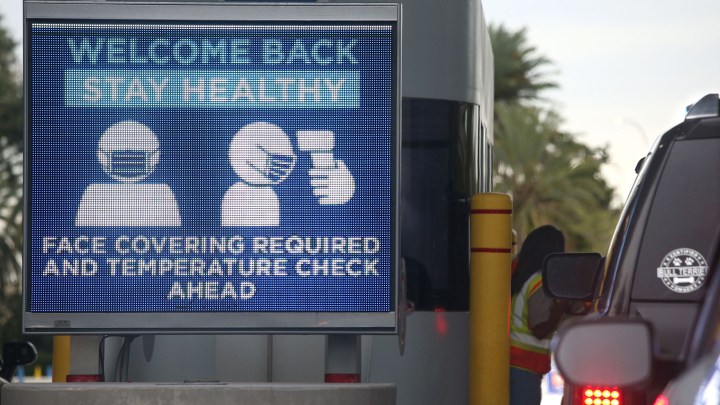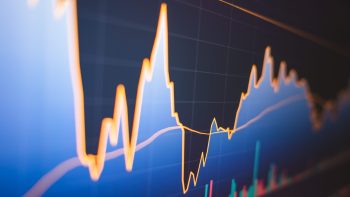
Are we almost through the worst of the COVID-19 economic decline?
Are we almost through the worst of the COVID-19 economic decline?

The National Association for Business Economics just released its June 2020 outlook survey, looking at how U.S. GDP is going do over the next year or so. All said and done, the U.S. economy will shrink almost 6% this year. That would be the sharpest annual decline since GDP fell 11.6% in 1946, when the nation was demobilizing after World War II.
However, the country is almost done with the worst of it — they predict we’ll be growing again in July, August and September. Next year, they say the economy will grow about 4%.
Constance Hunter, president of the NABE and chief economist at KPMG, says “we should see a bounce back up,” even after a projected 33% drop in GDP, on an annualized basis, for the second quarter of 2020.
She spoke with Marketplace’s Sabri Ben-Achour. The following is an edited transcript of their conversation.
Sabri Ben-Achour: Your panelists are forecasting a 33% drop in second quarter GDP — that’s on an annualized basis. That is staggering. But then when are we going to see things turn around?
Constance Hunter: Most of the panelists believe that the first positive quarterly change in GDP will come in Q3. But here we need to stress that when we have a large decline in quarterly annualized GDP growth, that is not indicative of the trend going forward. We should see a bounce back up. And then really thinking about, when are we going to get back to the pre-COVID levels? And that is something that most economists do not expect until either the second half of 2021 or the first half of 2022.
Ben-Achour: What are the drivers behind that?
Hunter: Really, the health outcomes will drive all of the economic outcomes. And there seems to be an implicit assumption that we will have better treatment protocols. There is a real focus that the risks to the economy are centered on the disease, the protocols around how we interact with it, until we have a vaccine, and then ultimately having a vaccine. Now that we’ve had parts of the economy open, we’re going to see how much social closeness we should be actually having.
There’s a lot happening in the world. Through it all, Marketplace is here for you.
You rely on Marketplace to break down the world’s events and tell you how it affects you in a fact-based, approachable way. We rely on your financial support to keep making that possible.
Your donation today powers the independent journalism that you rely on. For just $5/month, you can help sustain Marketplace so we can keep reporting on the things that matter to you.


















